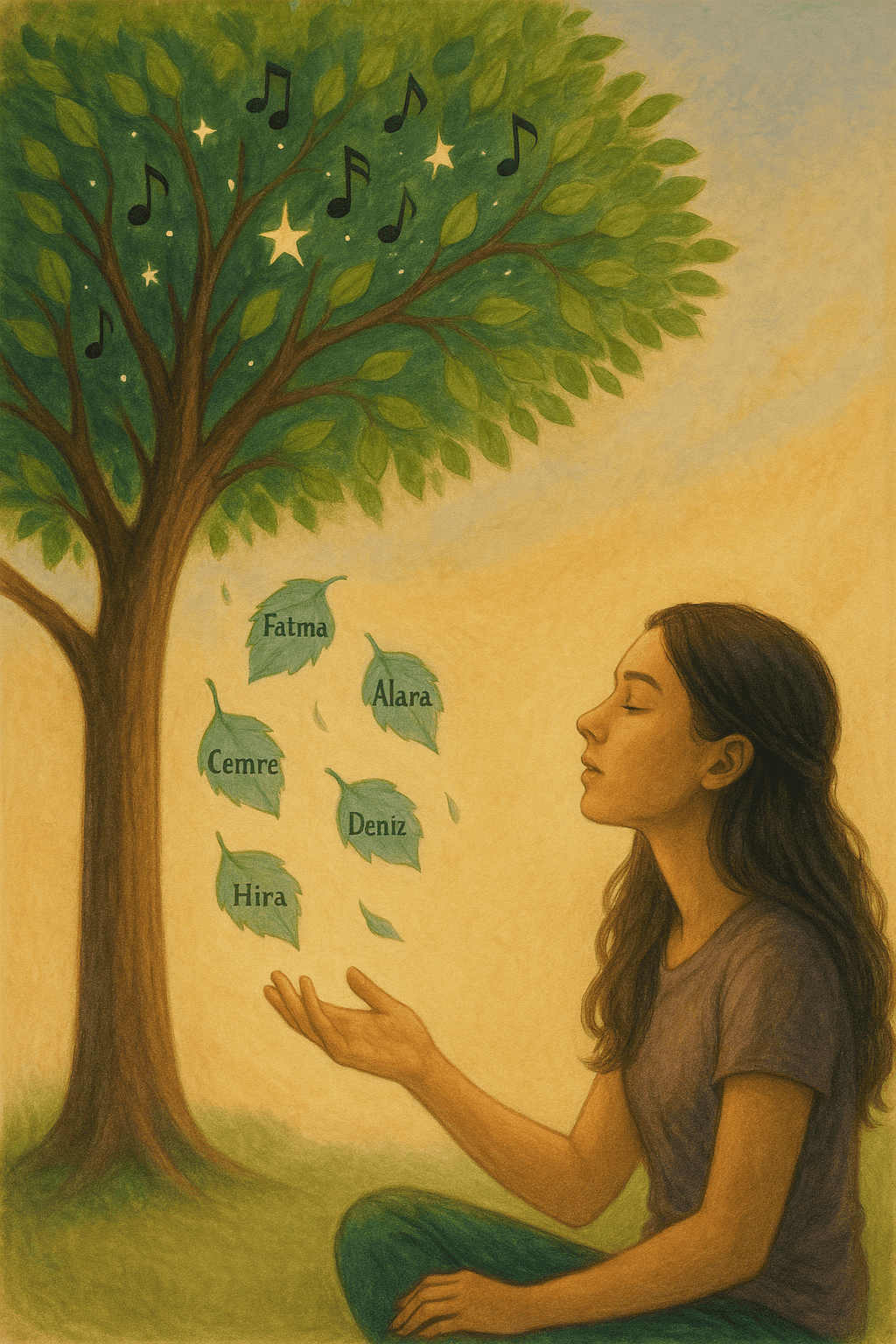As the girls of Be the Voice of Girls’ third cohort gathered for what would be their final session, there was no grand finale, no overt celebration. Instead, there was breath. And stillness. And music. Led by Sydney Zupnick, a board-certified music therapist and the Director of Music Therapy for A Tribe for Jazz, this session was less a conclusion than a quiet blooming — a moment when what had been planted over the previous nine months quietly showed its petals.
Sydney opened the session not with a lecture, but with a breath. She guided the girls through a deep breathing exercise accompanied by soft guitar music, encouraging them to notice their thoughts, their bodies, and their breath. The room — or rather, the patchwork of bedrooms and kitchens that formed this virtual circle — seemed to still itself. One girl shared that the music brought back images from a dream she’d had. Another noticed tension she’d never known she was carrying. These were not simply signs of relaxation; they were indicators of a deeper literacy: emotional fluency, cognitive awareness, and self-trust.
This session marked Be the Voice of Girls’ second collaboration with A Tribe for Jazz, an Ohio-based nonprofit whose mission is to preserve the legacy of jazz through education, live performance, and community engagement. Under the leadership of Stephanie Matthews, A Tribe for Jazz has become a beacon for creative STEAM programming, including its Mobile Jazz Lab initiative. In this context, Sydney’s work added another layer to the BVG curriculum, reminding participants that music is not only art and expression — it is also science, therapy, and medicine.
Music therapy is not a well-known concept in much of Turkey, and certainly not one commonly discussed in public school settings. Yet here it was, being not just explained but experienced. As Sydney walked the girls through the methods of music therapy — receptive, recreative, improvisational, and compositional — she made the abstract tangible. The session wasn’t just about listening; it was about understanding how sound can become a vessel for healing, connection, and transformation.
At one point, a student asked whether music therapy was useful for individuals with autism. It was a nuanced and insightful question, and Sydney’s answer was just as thoughtful. She explained that music therapy, like any therapeutic modality, must respect the agency of the individual. Some may connect deeply, others may not — and that is entirely valid. Her message was clear: therapy must begin with listening, not speaking. With asking, not assuming.
Perhaps the most moving moment came not from Sydney but from one of the girls, who unprompted expressed her gratitude: “You brought me so many wonderful things. You made me experience things that maybe I may never have the chance in my life. I’m so thankful for this.”
It is easy to mistake language learning as something that happens in grammar drills or vocabulary quizzes. But the deeper goal of Be the Voice of Girls has never been linguistic correctness — it has been connection. And in this final session, that connection was evident in the questions the girls asked, the calm with which they received complex concepts, and the emotional intelligence they displayed without ever needing to be told how.
This wasn’t a program that ended with fanfare. It ended with resilience — a quiet, sturdy kind of growth that doesn’t need translation.
As co-founder Carl Holtman prepares to attend the Rotary International Convention in Calgary, he carries with him not just the curriculum outlines or program metrics, but the voices of these girls. This cohort, the most thoroughly documented in BVG’s history, is living proof of what can happen when language becomes a bridge to understanding, and understanding becomes a path to empowerment.
For Carl, Rotary is no mere affiliation — it is the living continuation of a promise. It was in the wake of personal tragedy, following the 2023 earthquakes that claimed the lives of co-founder Fatma Dodurka, her daughter Alara, and three beloved students — Cemre, Deniz, and Hira — that he joined Rotary. It became both a sanctuary and a platform, a place where Be the Voice of Girls could be carried forward. From the Whitehall-Bexley Rotary Club presidency to new district partnerships and global collaborations, the story is expanding. Calgary is just the next chapter.
And so, the session ends. But the song, as ever, goes on.


